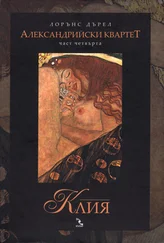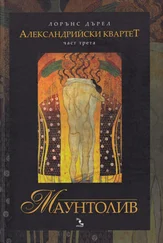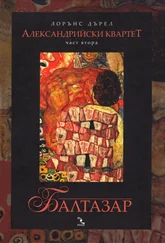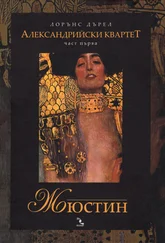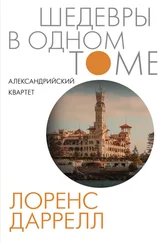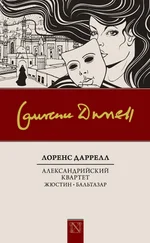Лоренс Даррелл - Prospero's Cell
Здесь есть возможность читать онлайн «Лоренс Даррелл - Prospero's Cell» весь текст электронной книги совершенно бесплатно (целиком полную версию без сокращений). В некоторых случаях можно слушать аудио, скачать через торрент в формате fb2 и присутствует краткое содержание. Жанр: Проза, на английском языке. Описание произведения, (предисловие) а так же отзывы посетителей доступны на портале библиотеки ЛибКат.
- Название:Prospero's Cell
- Автор:
- Жанр:
- Год:неизвестен
- ISBN:нет данных
- Рейтинг книги:4 / 5. Голосов: 2
-
Избранное:Добавить в избранное
- Отзывы:
-
Ваша оценка:
- 80
- 1
- 2
- 3
- 4
- 5
Prospero's Cell: краткое содержание, описание и аннотация
Предлагаем к чтению аннотацию, описание, краткое содержание или предисловие (зависит от того, что написал сам автор книги «Prospero's Cell»). Если вы не нашли необходимую информацию о книге — напишите в комментариях, мы постараемся отыскать её.
Prospero's Cell — читать онлайн бесплатно полную книгу (весь текст) целиком
Ниже представлен текст книги, разбитый по страницам. Система сохранения места последней прочитанной страницы, позволяет с удобством читать онлайн бесплатно книгу «Prospero's Cell», без необходимости каждый раз заново искать на чём Вы остановились. Поставьте закладку, и сможете в любой момент перейти на страницу, на которой закончили чтение.
Интервал:
Закладка:
Lawrence Durrell
Prospero's Cell
PROSPERO'S CELL
A guide to the landscape and manners of the island of Corcyra
by LAWRENCE DURRELL
FOUR OF THE CHARACTERS IN THIS BOOK ARE REAL PEOPLE AND APPEAR HERE BY THEIR OWN CONSENT.
TO THE FOUR OF THEM:
THEODORE STEPHANIDES
ZARIAN
THE COUNT D.
AND MAX NIMIEC
IT IS DEDICATED BY THE AUTHOR IN LOVE AND ADMIRATION
ACKNOWLEDGEMENTS
Acknowledgements for material used in this book must be made to:
Dr. Theodore Stephanides, R.A.M.C., who has placed five unpublished monographs at my disposal containing the fruits of ten years' research; Mr. Jean Tricoglou of Cairo for illustrations and other matter; Mr. Theodore Moschonas for valuable suggestions; and to Miss Y. Cohen for invaluable aid in copying out manuscripts.
'A Greekish isle, and the most pleasant place that ever our eyes beheld for the exercise of a solitary and contemplative life. . In our travels many times, falling into dangers and unpleasant places, this only island would be the place where we would wish ourselves to end our lives.'— ANTHONY SHERLEY, His Persian Adventure 1601.
I. DIVISIONS UPON GREEK GROUND
'No tongue: all eyes: be silent.'
The Tempest
Somewhere between Calabria and Corfu the blue really begins. All the way across Italy you find yourself moving through a landscape severely domesticated — each valley laid out after the architect's pattern, brilliantly lighted, human. But once you strike out from the flat and desolate Calabrian mainland towards the sea, you are aware of a change in the heart of things: aware of the horizon beginning to stain at the rim of the world: aware of islands coming out of the darkness to meet you.
In the morning you wake to the taste of snow on the air, and climbing the companion-ladder, suddenly enter the penumbra of shadow cut by the Albanian mountains — each wearing its cracked crown of snow — desolate and repudiating stone.
A peninsula nipped off while red hot and allowed to cool into an antarctica of lava. You are aware not so much of a landscape coming to meet you invisibly over those blue miles of water as of a climate. You enter Greece as one might enter a dark crystal; the form of things becomes irregular, refracted. Mirages suddenly swallow islands, and wherever you look the trembling curtain of the atmosphere deceive.
Other countries may offer you discoveries in manners or lore or landscape; Greece offers you something harder — the discovery of yourself.
10.4.37
It is a sophism to imagine that there is any strict dividing line between the waking world and the world of dreams. N. and I, for example, are confined by the sense of several comtemporaneous lives being lived inside us; the sensation of being mere points of reference for space and time. We have chosen Corcyra perhaps because it is an ante-room to Aegean Greece with its smoke-grey volcanic turtle-backs lying low against the ceiling of heaven. Corcyra is all Venetian blue and gold — and utterly spoilt by the sun. Its richness cloys and enervates. The southern valleys are painted out boldly in heavy brush-strokes of yellow and red while the Judas trees punctuate the roads with their dusty purple explosions. Everywhere you go you can lie down on grass; and even the bare northern reaches of the island are rich in olives and mineral springs.
25.4.37
The architecture of the town is Venetian; the houses above the old port are built up elegantly into slim tiers with narrow alleys and colonnades running between them; red, yellow, pink, umber-a jumble of pastel shades which the moonlight transforms into a dazzling white city built for a wedding cake. There are other curiosities; the remains of a Venetian aristocracy living in overgrown baronial mansions, buried deep in the country and surrounded by cypresses. A patron saint of great antiquity who lies, clad in beautifully embroidered slippers, in a great silver casket, apt for the performance of miracles.
29.4.37
It is April and we have taken an old fisherman's house in the extreme north of the island — Kalamai. Ten sea-miles from the town, and some thirty kilometres by road, it offers all the charms of seclusion. A white house set like a dice on a rock already venerable with the scars of wind and water. The hill runs clear up into the sky behind it, so that the cypresses and olives overhang this room in which I sit and write. We are upon a bare promontory with its beautiful clean surface of metamorphic stone covered in olive and ilex: in the shape of a mons pubis. This is become our unregretted home. A world. Corcyra.
5.5.37
The books have arrived by water. Confusion, adjectives, smoke, and the deafening pumping of the wheezy Diesel engine. Then the caique staggered off in the direction of St. Stephano and the Forty Saints, where the crew will gorge themselves on melons and fall asleep in their coarse woollen vests, one on top of the other, like a litter of cats, under the ikon of St. Spiridion of Holy Memory. We are depending upon this daily caique for our provisions.
6.5.37
Climb to Vigla in the time of cherries and look down. You will see that the island lies against the mainland roughly in the form of a sickle. On the landward side you have a great bay, noble and serene, and almost completely landlocked. Northward the tip of the sickle almost touches Albania and here the troubled blue of the Ionian is sucked harshly between ribs of limestone and spits of sand. Kalamai fronts the Albanian foothills, and into it the water races as into a swimming-pool: a milky ferocious green when the north wind curdles it. 7.5.37
The cape opposite is bald; a wilderness of rock-thistle and melancholy asphodel — the drear sea-squill. It was on a ringing spring day that we discovered the house. The sky lay in a heroic blue arc as we came down the stone ladder. I remember N. saying distinctly to Theodore: 'But the quietness alone makes it another country.' We looked through the hanging screen of olive-branches on to the white sea wall with fishing-tackle drying on it. A neglected balcony. The floors were cold. Fowls clucked softly in the gloom where the great olive-press lay, waiting its season. A cypress stood motionless — as if at the gates of the underworld. We shivered and sat on the white rock to eat, looking down at our own faces in the motionless sea. You will think it strange to have come all the way from England to this fine Grecian promontory where our only company can be rock, air, sky — and all the elementals. In letters home N. says we have been cultivating the tragic sense. There is no explanation. It is enough to record that everything is exactly as the fortune-teller said it would be. White house, white rock, friends, and a narrow style of loving: and perhaps a book which will grow out of these scraps, as from the rubbish of these old Venetian tombs the cypress cracks the slabs at last and rises up fresh and green.
9.5.37
We are lucky in our friends. Two of them seem of almost mythological quality — Ivan Zarian and the arcane professor of broken bones Theodore Stephanides. Zarian is grey, eminent and imposing with his mane of hair and his habit of conducting himself as he intones his latest love-song; he claims to be Armenia's greatest poet with a firmness and modesty that completely charm. He has spent nearly two years here intoning his work to anyone who would listen, and making an exhaustive study of the island wines. He has managed to convert the top floor of the St. George Hotel into a workroom — indeed a wilderness of manuscript and paintings. Here, looking out upon the blunt fortifications of the Eastern Fort, and pausing from time to time to relish a glass of wine, he compiles his literary column for some new world Armenian newspapers. On Friday, the 8th of March, he sent me a friendly message reading:
Читать дальшеИнтервал:
Закладка:
Похожие книги на «Prospero's Cell»
Представляем Вашему вниманию похожие книги на «Prospero's Cell» списком для выбора. Мы отобрали схожую по названию и смыслу литературу в надежде предоставить читателям больше вариантов отыскать новые, интересные, ещё непрочитанные произведения.
Обсуждение, отзывы о книге «Prospero's Cell» и просто собственные мнения читателей. Оставьте ваши комментарии, напишите, что Вы думаете о произведении, его смысле или главных героях. Укажите что конкретно понравилось, а что нет, и почему Вы так считаете.


